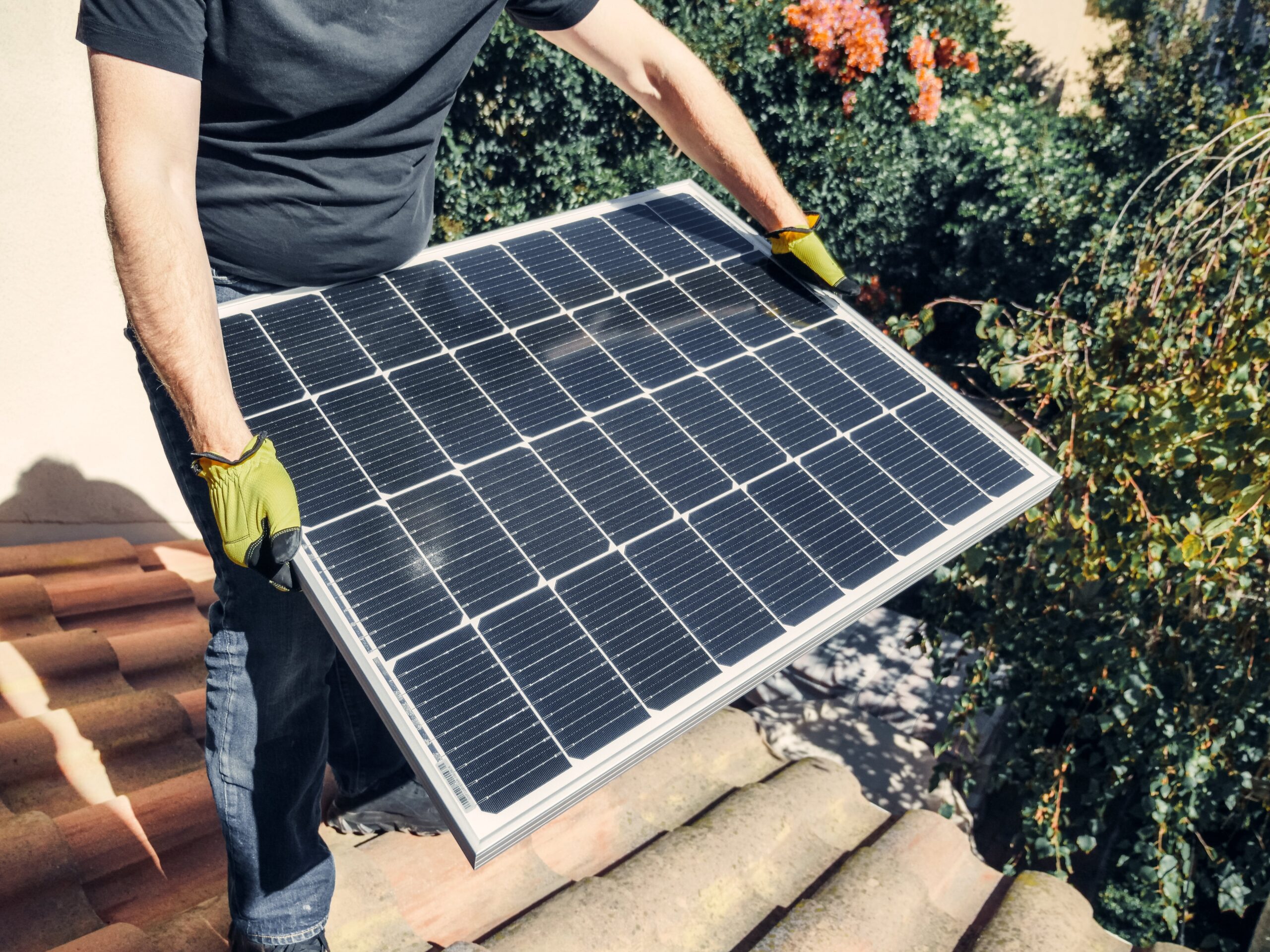Are you a well owner in an urban or suburban setting? If so, you may be wondering how to access valuable resources that can help you maintain and manage your well effectively. Fortunately, there are various ways to learn about these resources that can provide you with the necessary information and support you need. From online platforms and local organizations to government agencies, this article will explore different avenues to help you become well-informed and confident in managing your well. So, let’s dive in and discover the wealth of resources available to assist well owners like yourself in urban and suburban settings!

Understanding Well Ownership in Urban and Suburban Settings
Owning a well in an urban or suburban area can provide numerous benefits, such as a reliable source of water and increased self-sufficiency. However, it is important to understand the legality, types of wells allowed, and regulations associated with well ownership in these settings.
Legality of Well Ownership in Urban and Suburban Areas
Before diving into the world of well ownership, it is crucial to ensure that it is legally permitted in your specific urban or suburban area. Each jurisdiction may have its own rules and regulations regarding well ownership, so it is essential to familiarize yourself with the local laws. Contacting your local government or municipality is the first step in determining the legality of well ownership in your area.
Types of Wells Allowed in Urban and Suburban Areas
Once you have confirmed the legality of well ownership, the next step is to understand the types of wells that are allowed in urban and suburban areas. Common types of wells include drilled wells, driven wells, and bored wells. Each type has its own advantages and considerations, so it is important to research and consult with professionals to determine the most suitable option for your property.
Regulations and Permits for Well Installation in Urban and Suburban Areas
Installing a well in an urban or suburban area typically requires compliance with specific regulations and obtaining necessary permits. These regulations aim to ensure the safety and proper functioning of the well system. It is essential to familiarize yourself with the permitting process and any regulations imposed by your local government or municipality. Consulting with city or county health departments can provide valuable information and guidance regarding the necessary permits and regulatory requirements for well installation.
Finding Local Government and Municipal Resources
Navigating the process of well ownership in urban and suburban areas can be made easier by accessing relevant resources provided by local government and municipal agencies. These resources can help you understand the regulations, guidelines, and procedures related to well ownership.
Contacting Local Water Management Agencies
One of the first steps in finding information about well ownership resources is to reach out to local water management agencies. These agencies often have dedicated departments or personnel knowledgeable about well ownership in urban and suburban settings. They can provide guidance on the legal requirements, permits, and resources available to well owners in your area. They may also offer educational programs or workshops that can enhance your understanding of well ownership.
Researching Well Ownership Regulations and Guidelines on Official Websites
Many local government and municipal websites have information on well ownership regulations and guidelines easily accessible to the public. These websites often provide downloadable resources, manuals, or brochures that explain the requirements and steps involved in well ownership. Take the time to explore these websites and familiarize yourself with the specific regulations and guidelines applicable to your situation.
Consulting with City or County Health Departments
City or county health departments play a crucial role in ensuring the safety of well water and can provide valuable resources for well owners. They are often responsible for overseeing compliance with water quality standards and regulations. Contacting your local health department can help you access resources such as guidance on water testing, well maintenance, and troubleshooting advice. They may also possess information on educational opportunities or workshops related to well ownership.
Exploring Online Resources for Well Owners
The internet is a valuable tool for accessing a wealth of resources on well ownership, maintenance, and troubleshooting. There are numerous online communities, government websites, and resourceful platforms that cater specifically to well owners in urban and suburban areas.
Online Communities and Forums for Well Owners
Engaging with online communities and forums dedicated to well owners can provide a wealth of knowledge and support. These platforms allow you to connect with experienced well owners who can share their insights and experiences. They often provide a space to ask questions, seek advice, and discuss common challenges faced by well owners in urban and suburban areas. Participating in these communities can help broaden your understanding and provide valuable perspectives on well ownership.
Government Websites with Well Ownership Information
Many government websites, including state and federal agencies, offer comprehensive information on well ownership. These websites often include guides, fact sheets, and online tools that cover a wide range of topics related to well ownership. They may also provide updates on regulatory changes, funding opportunities, and water conservation initiatives. Exploring these websites can provide you with a solid foundation of knowledge and keep you informed about the latest developments in the field.
Resourceful Websites for Well Maintenance and Troubleshooting
There are several websites dedicated to providing resources and guidance for well maintenance and troubleshooting. These websites offer tips, step-by-step guides, and instructional videos to help well owners maintain their systems effectively. They cover topics such as well cleaning, pump maintenance, and common issues faced by well owners. Bookmarking these websites and referring to them when needed can save you time and money by empowering you to address minor issues on your own.
Seeking Guidance from Well Owner Associations
Well owner associations exist to provide support, resources, and advocacy for well owners in specific regions. These associations can be valuable allies in navigating the complexities of well ownership in urban and suburban areas.
Benefits of Joining Well Owner Associations
Joining a well owner association offers numerous benefits, including access to expertise, educational opportunities, and a network of fellow well owners. These associations often provide resources specific to your area, such as local well contractor directories, discounts on well-related services, and newsletters with valuable updates. Being a part of a well owner association allows you to stay informed, connected, and supported by a community of individuals with similar interests and challenges.
Locating and Contacting Well Owner Associations in Your Area
To find a well owner association in your area, start by searching online directories or contacting larger, regional well associations. Often these larger associations can provide information about smaller, local well owner associations. Local water management agencies, city or county health departments, or even well drillers may also have information about well owner associations in your specific location. Reach out to these associations to inquire about membership and the resources they offer to well owners.
Attending Well Owner Workshops and Events
Well owner associations often organize workshops, seminars, and events geared towards educating and empowering well owners. These opportunities allow you to learn from industry experts, experienced well owners, and professionals in the field. Workshops may cover topics such as well water testing, maintenance techniques, water conservation practices, and troubleshooting common issues. Attending these events can deepen your knowledge and connect you with experts and peers who can provide valuable insights and guidance.

Consulting with Local Well Drillers and Contractors
Local well drillers and contractors are experienced professionals who can provide guidance and services throughout your well ownership journey. Consulting with these experts can help you make informed decisions, receive professional advice, and ensure the proper installation, maintenance, and repair of your well system.
Researching and Contacting Licensed Well Drillers
When considering well installation, it is crucial to work with licensed and reputable well drillers. Research local well drillers and check their credentials and reputation. Contact multiple well drillers to obtain quotes, compare services, and evaluate their expertise in urban and suburban well installations. Well drillers can provide valuable insights into the drilling process, types of wells suitable for your area, and the associated costs.
Inquiring About Local Well Drilling and Maintenance Services
In addition to drilling new wells, many well drillers also offer maintenance and repair services. Inquire about their offerings and ask for recommendations on routine maintenance practices to keep your well system in optimal condition. Establishing a working relationship with a reputable well driller can provide peace of mind and a reliable resource for any future maintenance or repair needs.
Seeking Professional Advice for Well Ownership in Urban and Suburban Areas
Well drillers and contractors have hands-on experience in working with well systems and can provide valuable advice specific to urban and suburban areas. Whether it’s discussing the best practices for conserving water or addressing concerns related to well water quality, consulting with these professionals can help you make informed decisions throughout your well ownership journey. They can guide you on system upgrades, water treatment options, and the latest technology available for well owners, ensuring you have access to the most reliable and efficient well system possible.
Educational Opportunities for Well Owners
Continuous education and learning about well ownership are essential for maintaining a healthy and efficient well system. There are various educational opportunities available specifically designed for well owners in urban and suburban areas.
Attending Well System Training Courses
Well system training courses are structured educational programs that cover various aspects of well ownership, maintenance, and water quality. These courses are often conducted by professionals in the field and provide in-depth knowledge on topics such as well construction, well system components, water testing, and treatment methods. Attending these courses can enhance your understanding of the technical aspects of well ownership and equip you with the skills to maintain your well system effectively.
Participating in Well Water Testing and Treatment Classes
Understanding the importance of water quality and knowing how to test and treat your well water is crucial for the health and wellbeing of your household. Well water testing and treatment classes provide hands-on training and practical knowledge on conducting tests, interpreting results, and implementing appropriate treatment methods. These classes can empower you to monitor the quality of your well water and take corrective actions if necessary.
Accessing Webinars and Online Courses for Well Owners
In today’s digital age, webinars and online courses offer convenience and flexibility in accessing valuable educational resources for well owners. There are numerous webinars and online courses specifically tailored to the needs and challenges of well owners in urban and suburban areas. These resources cover a wide range of topics, including well maintenance, water conservation, troubleshooting common issues, and understanding well regulations. Participating in these virtual learning opportunities allows you to access expert knowledge from the comfort of your home and at your own pace.

Well Water Testing Options
Regular well water testing is essential to ensure the safety and quality of the water consumed by your household. Understanding the importance of testing, knowing where to get it done, and interpreting the results are crucial for maintaining a healthy well system.
Understanding the Importance of Regular Well Water Testing
Regular well water testing is vital because it helps you identify potential contaminants or issues that may compromise the quality of your water. Testing can detect harmful bacteria, viruses, heavy metals, and other pollutants that may adversely affect your health. By conducting regular tests, you can detect problems early and take appropriate actions to treat, mitigate, or prevent water quality issues.
Locating Certified Labs for Well Water Testing
To ensure the accuracy and reliability of your well water test results, it is important to utilize certified labs that specialize in testing well water. Certified labs have the necessary expertise, equipment, and quality control measures in place to provide accurate and comprehensive testing services. You can locate certified labs by searching online directories, contacting your local health department, or reaching out to well owner associations for recommendations. It is advisable to establish a relationship with a reputable lab that can provide consistent testing services whenever needed.
Interpreting Test Results and Taking Appropriate Actions
Once you receive your well water test results, interpreting them correctly is crucial in determining the necessary actions. Some test results may indicate the presence of contaminants or an imbalance in water chemistry. It is important to understand the implications of different test parameters and consult with professionals if necessary. Based on the test results, appropriate actions can be taken, such as disinfection methods, water treatment systems, or implementing preventive measures to maintain water quality. A water treatment professional or your local health department can guide you in interpreting the test results and deciding on the most suitable course of action.
Well Maintenance and Troubleshooting Tips
Implementing regular well maintenance practices and being able to troubleshoot common issues are essential for the longevity and efficiency of your well system. By incorporating preventive measures and addressing problems promptly, you can ensure a consistent supply of clean, potable water.
Implementing Regular Well Maintenance Practices
Regular well maintenance practices are crucial to prevent potential issues and maintain the optimal performance of your well system. Simple maintenance tasks such as inspecting the well cap, checking for leaks, testing the well pump, and cleaning the well surroundings can help identify minor issues before they escalate. Creating a maintenance schedule tailored to your well system and diligently following it can go a long way in extending the life of your well and avoiding costly repairs.
Identifying Common Well Problems and Solutions
Well systems can experience various issues over time, and being able to identify and address them promptly is key to maintaining a functional well. Common problems include low water pressure, odor or discoloration in water, pump failure, and well casing issues. Understanding the symptoms of these issues and being knowledgeable about possible solutions can empower you to address them proactively. Consulting with well drillers, contractors, or experienced well owners can provide insights and guidance on troubleshooting common problems specific to urban and suburban well systems.
Choosing Reliable Contractors for Well Repairs and Upgrades
Inevitably, some well systems may require repairs or upgrades at some point. It is important to work with reliable contractors who have experience in well repairs and upgrades specific to urban and suburban areas. Research local contractors, check their qualifications and track record, and inquire about their experience with similar projects. Seeking recommendations from well owner associations, local water management agencies, or neighbors who have had successful experiences with contractors can help you find reputable professionals to handle your well repairs and upgrades.
Financial Assistance for Well Owners
Well installation, repairs, and upgrades can come with substantial costs. However, there are avenues for financial assistance that well owners in urban and suburban areas can explore to alleviate some of the financial burdens.
Researching Grants and Loans for Well Installation or Repair
Researching grants and loans specifically designed for well installation or repair can provide financial relief for homeowners. Many government programs at the local, state, and federal levels offer funding opportunities or low-interest loans for eligible well owners. These programs aim to promote water conservation, improve water quality, and provide assistance to homeowners facing challenges in accessing safe and reliable water sources. Researching and applying for these funding options can help offset some of the costs associated with well ownership.
Investigating Tax Incentives for Well Owners
Tax incentives or credits may be available to homeowners who invest in well systems or incorporate water-saving measures. These incentives can help offset the initial costs of well installation or incentivize the adoption of water conservation practices. Researching local tax laws and consulting with tax professionals can provide insights into potential tax incentives or credits available to well owners in your area. Taking advantage of these incentives can make well ownership more financially viable and rewarding.
Exploring Insurance Options for Well-Related Issues
In some cases, homeowners’ insurance policies may cover certain well-related issues, such as damage to the well pump or contamination remediation. Reviewing your insurance policy and discussing it with your insurance provider can help you understand the extent of coverage for well-related incidents. It is important to ensure that your insurance policy adequately protects you against potential well-related risks. Inquire about additional coverage options if needed, such as coverage for well repairs or upgrades. Exploring insurance options provides financial security and peace of mind for well owners in urban and suburban areas.
Understanding Water Conservation Practices
As responsible well owners, implementing water conservation practices is essential to preserve this valuable resource and minimize the strain on your well system. By adopting water-saving techniques and efficient irrigation methods, you can ensure sustainable water use in urban and suburban settings.
Implementing Water-Saving Techniques for Well Owners
Water-saving techniques can significantly reduce water consumption and alleviate strain on your well system. Simple practices such as fixing leaks promptly, using efficient appliances, collecting rainwater for outdoor use, and implementing low-flow fixtures can make a significant difference in water conservation. Being mindful of water usage habits and encouraging household members to adopt water-saving practices creates a culture of conservation and ensures the long-term sustainability of your well system.
Learning About Efficient Irrigation Methods
Efficient irrigation methods are crucial in maintaining healthy landscapes while minimizing water waste. Well owners in urban and suburban areas can benefit from learning about irrigation practices that optimize water use. Techniques such as drip irrigation, choosing drought-tolerant plants, and proper scheduling of watering cycles can reduce water consumption and prevent overwatering. Consulting with local extension offices, attending workshops, or seeking advice from professional landscapers can provide guidance on efficient irrigation methods tailored to your specific region.
Education on Sustainable Water Use in Urban and Suburban Settings
Educating yourself and your household members on sustainable water use practices is key to long-term water resource management. Understanding the local climate, water availability, and conservation efforts in your area can help you make informed decisions about water use. Resources such as online courses, webinars, local water management agencies, or city sustainability programs can provide valuable information and guidance on sustainable water use practices. By actively participating in conservation initiatives and embracing sustainable habits, you contribute to the preservation of this valuable resource for future generations.
In conclusion, understanding well ownership in urban and suburban settings involves familiarizing yourself with the legality, types of wells allowed, and regulations associated with well installation. Accessing local government and municipal resources, exploring online platforms, seeking guidance from well owner associations, consulting with local well drillers and contractors, and attending educational opportunities are key steps in becoming a knowledgeable and responsible well owner. Regular well water testing, proper maintenance, and troubleshooting techniques ensure the longevity and efficiency of your well system. Exploring financial assistance options, incorporating water conservation practices, and promoting sustainable water use are important considerations for well owners in urban and suburban areas. By continually seeking knowledge, engaging with supportive communities, and embracing best practices, you can confidently navigate the world of well ownership and enjoy the benefits of a reliable water source.

